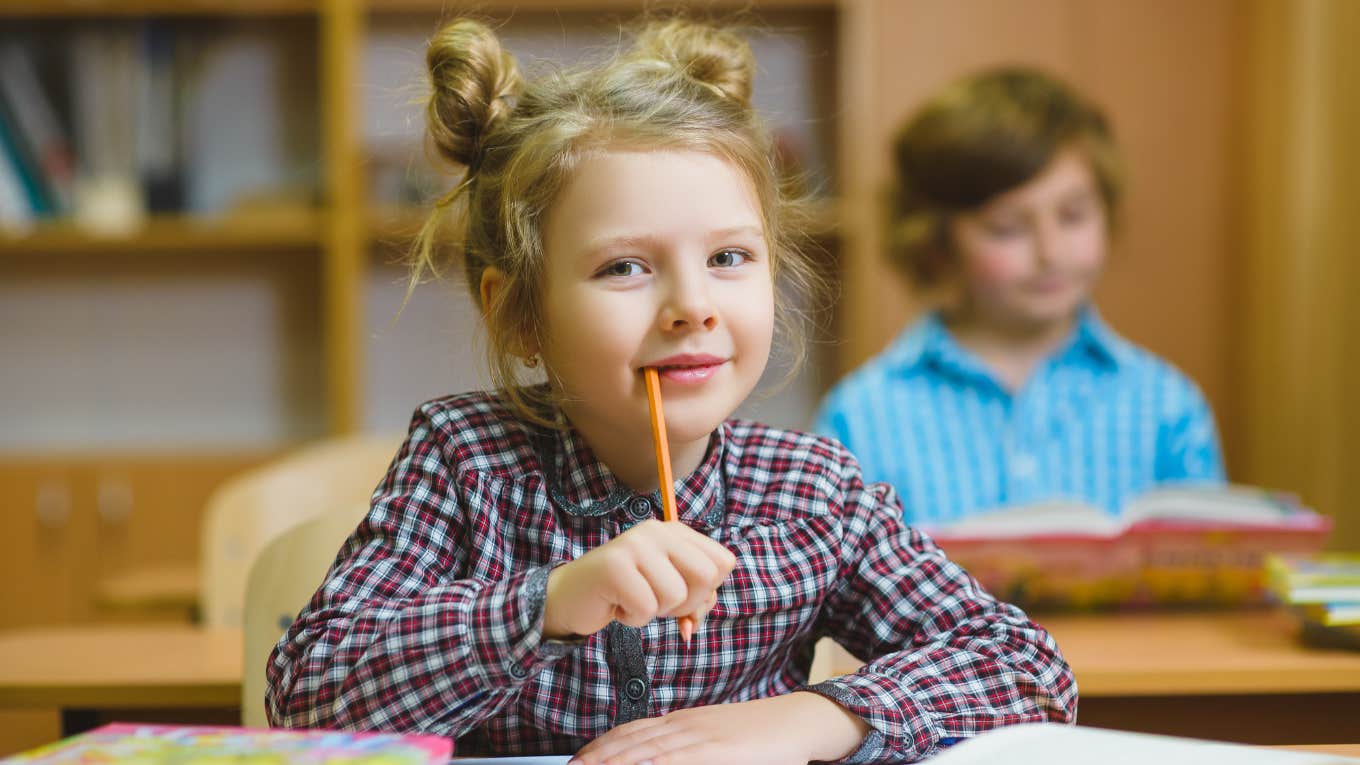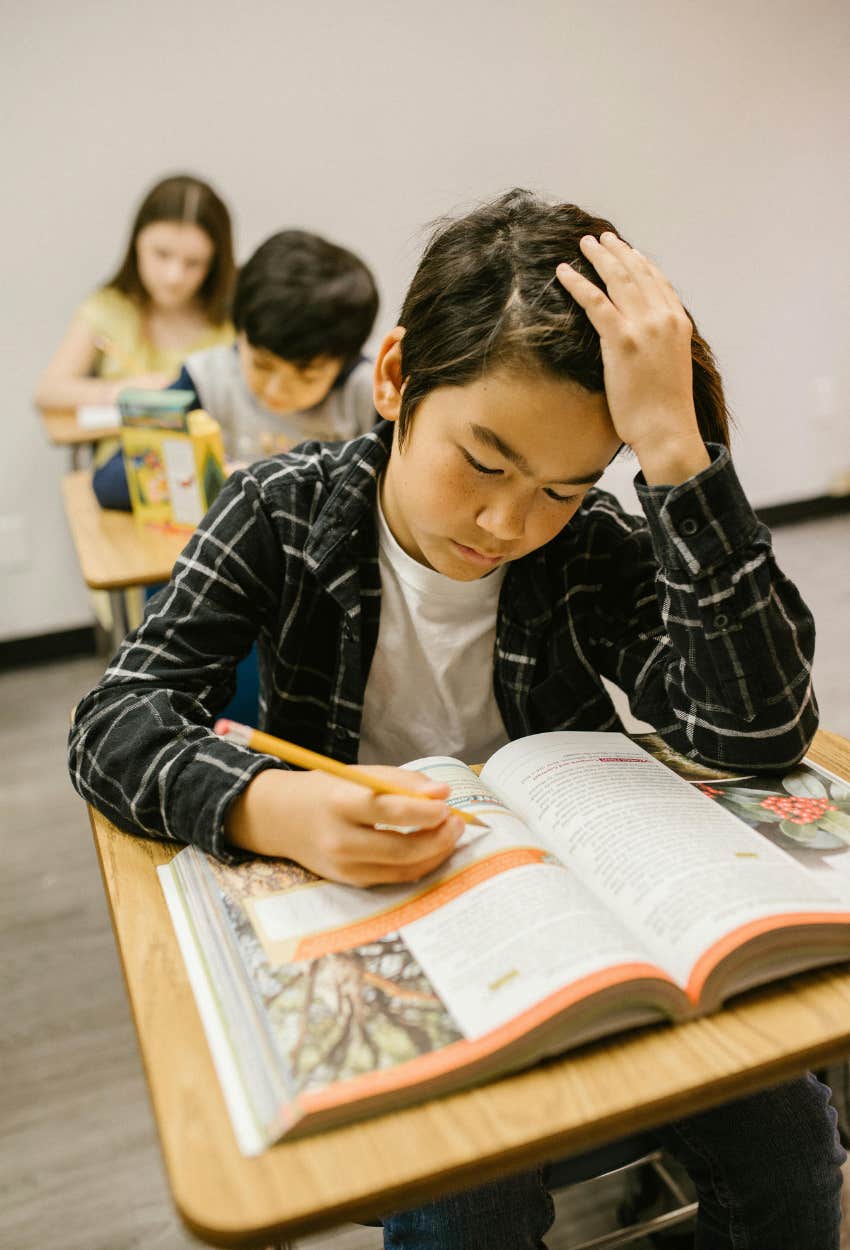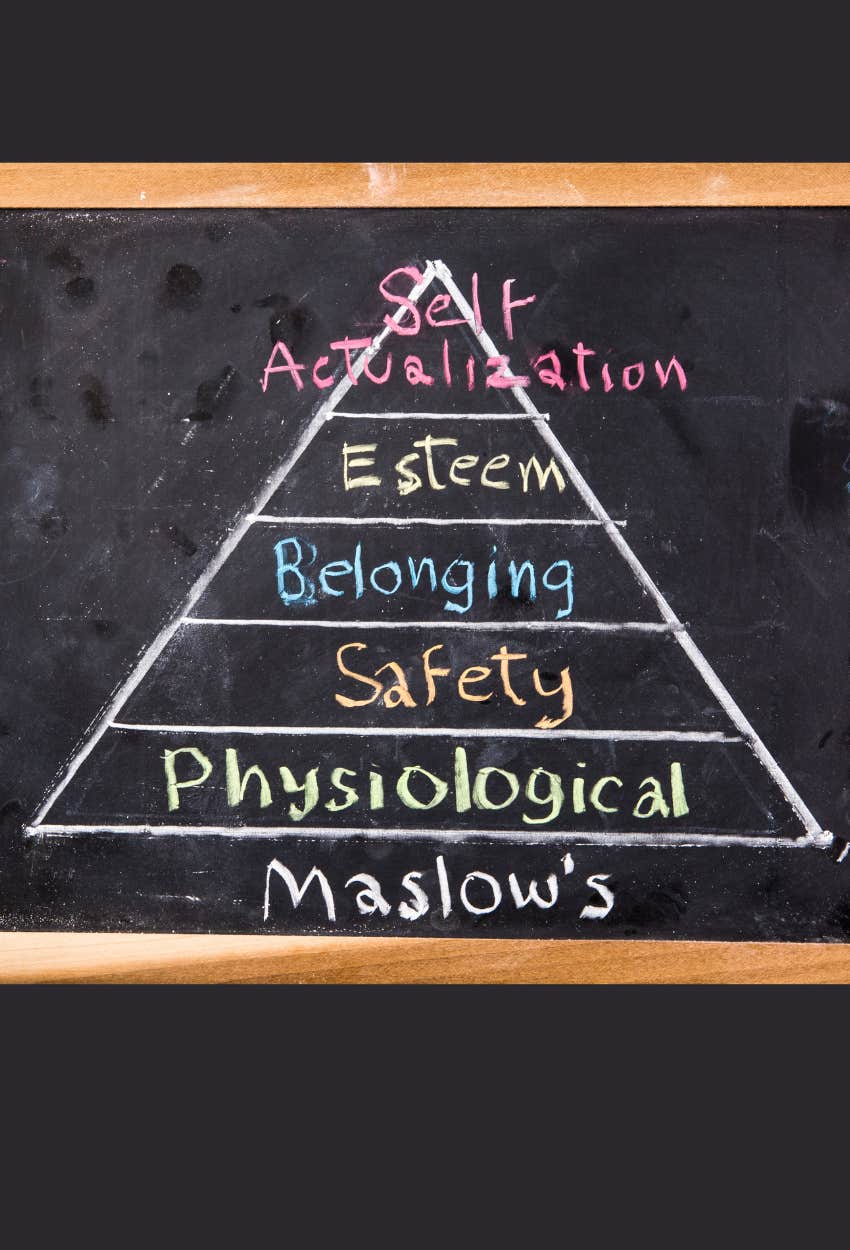Teacher Says Schools Aren’t The Problem — ‘Kids Need Parents Who Are OK’
Her take may be controversial, but she had a point by highlighting the home lives of students.
 Dreams Come True | Shutterstock
Dreams Come True | Shutterstock Schools are notoriously criticized for not doing enough to help their students. Teachers are expected to be like second parents to kids as they ensure they are cared for during the day. Where parents fall in this equation has grown murky. Increasingly, parents are putting pressure on schools to do everything and then some.
Schools are, of course, not the primary point of care for a child. That responsibility falls to their parents or guardians. One teacher feels like families are missing the point of this, though.
A teacher argued that parents are blaming schools for not doing enough to support their children when they’re causing the real issue.
A teacher and TikTok content creator named Tabitha shared some somewhat controversial thoughts on the relationship between parents and schools on the social media platform in a series of videos. She began by saying, “Education will not improve until students have families that are equipped with the bandwidth and the resources to parent. That’s it. That’s the TikTok.”
 RDNE Stock project | Pexels
RDNE Stock project | Pexels
Apparently, that was not it, because Tabita made subsequent videos responding to comments other users left. In one, a TikToker agreed with her. “Made a comment on a similar video stating schools and teachers are not forms of free daycare — got eaten alive in those comments,” they shared.
“I’m honestly not surprised,” Tabitha responded. “But the only way to shift that mindset is to build a community. And I don’t know that we’re there. I feel like the way that our society is run is we have one side who thinks, ‘Let’s share all of our resources. Let’s build everybody’s capacity.’ And then another side who is more interested in hoarding their resources, and, ‘I earned it so it’s mine.’ We can’t live in us versus them.”
Another commenter said, “The education system isn’t the problem. It’s society that’s broken. Kids need parents who are okay.” Tabitha compared this to the “Maslow before Bloom” model, which refers to two pyramid models created by Abraham Maslow and Benjamin Bloom. According to PACEs Connection, Maslow’s framework is based on physiological needs, while Bloom’s hierarchy deals with the way kids learn. Educators are taught that you must focus on Maslow’s model of basic needs first, thus creating the phrase “Maslow before Bloom.”
 lightofchairat | Shutterstock
lightofchairat | Shutterstock
Tabitha displayed a model of Maslow’s hierarchy and said that if parents are at the bottom, kids can’t get to the top. “It doesn’t matter if we have perfect teachers, perfect curriculum, perfect facilities, perfect everything,” she argued.
The teacher was willing to admit that the education system, as we know it, is problematic in itself.
Someone else pointed out that “the education system is ALSO the problem,” which Tabitha conceded is true. “We are chronically underfunded, or we’re spending our money on the wrong thing,” she agreed. “Our curriculum in general is very, very slow to follow brain science. It takes a long time to roll stuff out, get the teachers trained. And we have understaffed schools everywhere, because who wants to be a teacher?”
However, she still pointed to the students’ home lives as being essential to their success. “So much of our job isn’t teaching; it’s triaging, which I feel would be helped if we had students with their needs met,” she stated.
While school is an important institution, teachers can’t replace parents.
The American Psychological Association said, “Parents and caregivers are the most important people in a child’s life.” Good relationships between kids and their parents can lead to “higher self-esteem, better performance in school, and fewer negative outcomes such as depression or drug use in children and teenagers.”
Teachers are undoubtedly very important figures in their students’ lives, and school is an essential part of life for any kid. But that doesn’t mean that it can replace the role of parents and families. As Tabitha pointed out, schools can only do so much.
Mary-Faith Martinez is a writer with a bachelor’s degree in English and Journalism who covers news, psychology, lifestyle, and human interest topics.

